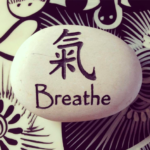On Saturday I was trolling Netflix for a new adventure, because let’s face it — Criminal Minds gets a bit formulaic (as psychologically sound, as it is), when I spotted Training Day. I recalled Denzel Washington’s award-winning, maniacal rogue cop performance and almost clicked through, when I saw 2001. “Hmm, that’s so dated — is it worth it?”
“Neomania” describes our obsession with everything new. Basically, if it’s not recent, shiny and fresh, it’s not valuable. I got to thinking about all the areas in my life which fall victim to neomania — from technology, fashion, and recipes — to books and blog posts. The thing is, if we’re constantly taking in the new, there’s no time to reflect, only digest.
I decided to give my system a break and repurpose content found on wiredforhappy.com, instead. Talk about a time saver, because when I set out to write I usually google search the topic at hand. Not to brag, but many times my own name comes up in the top queries! Duh!
Here are 17 random tips, quotes, beliefs, research findings, sprinkled with a dash of jackassosity to help you on your mental health journey.
1. Belly Breathing Exercise: ”I can’t catch my breath!” is a common panic symptom. Here’s the key to calm — remember to exhale. Before you take a breath, you have to give one away:
✔️Place one hand on your abdomen, and the other on your chest
✔️ Open your mouth and gently sigh (as if someone told you something annoying). Let your shoulders and upper body relax as you exhale
✔️ Close your mouth and pause for a few seconds
✔️ Keep your mouth closed and inhale slowly through your nose for a count of 4
✔️ Pause for a count of 4
✔️ Open your mouth. Exhale through your mouth for 4
✔️ Pause
✔️ Repeat
2. Quote: ”P.S. You’re not going to die. Here’s the white-hot truth: if you go bankrupt, you’ll still be okay. If you lose the gig, the lover, the house, you’ll still be okay. If you sing off-key, get beat by the competition, have your heart shattered, get fired…it’s not going to kill you. Ask anyone who’s been through it.” –Daneille LaPorte
3. Emotional IQ: Most people do not like to think about their emotions. They’re fine with talking about them, but not with feeling their feelings (feelings are generally one word responses which reflect emotional states such as happy, miserable, proud, etc. Thought: “He makes me so angry I want to punch this wall.” ). Or people mistakenly focus on the wrong thoughts in an effort to feel better. And sadly, some have next to no idea what’s going on between their ears on some days.
You can blame Cognitive-Dissonance for that:
“Cognitive dissonance refers to a situation involving conflicting attitudes, beliefs or behaviors. This produces a feeling of discomfort leading to an alteration in one of the attitudes, beliefs or behaviors to reduce the discomfort and restore balance etc. For example, when people smoke (behavior) and they know that smoking causes cancer (cognition). Cognitive dissonance theory suggests that we have an inner drive to hold all our attitudes and beliefs in harmony and avoid disharmony (or dissonance).”
4. Healthy thoughts: Consider your options when catastrophic thinking threatens to derail your mood. Close your eyes (this helps to block out stimulation) and fill in the blanks: I am afraid of ________. The worst-case scenario would be ________. On a scale of 1-10, the likelihood of this happening is ________. If this happens, I can do ________ and ________ and ________, instead of worry and feel helpless.
5. Age-old therapy question: What’s the difference between baring your soul to your bff versus a psychotherapist?
Answer: The primary advantage is your therapist helps to uncover hidden meaning in your beliefs, thought process + behaviors. Also, there’s no emotional stake (yes we care, but we’re objective and neutral). We are trained to listen, understand and observe as you play the game of life, while your friends are players in the game…Both are vital roles, and vitally different.
6. More on healthy thoughts: Rewire negative or unhealthy thoughts with four actions:
Step 1. Ask yourself, ‘Is this thought based in reality?’
Step 2. If yes, choose three actions to remedy your situation.
Step 3. If no, remember your negative bias is working against you (when recalling a situation, our memories tend to default to the negative events, and discount the positive events).
Step 4. Fire the Negative Committee inside your brain. Positivity is where it’s at, baby!
7. Relationship wisdom: When it comes to relationship stress, you have three choices:
- Maintain the status quo (AKA, react how you always do)
- Try to change the other person (or 11)
- Change yourself
Spoiler alert: According to research, #1 is the most common choice. The main reason: We don’t want to confront The Truth. It’s easier to hide in denial and hope things mysteriously change on their own.
8. On anxiety: Poor anxiety! You just can’t catch a break, can you? If it’s not one thing, it’s 27 others all coming at you like a freight train.
Think positive; practice mindfulness; don’t look behind you — you’re not going that way; stop being anxious!; do deep-breathing; take five breaths; count to 10; wait — why can’t I breathe?; should I be worried; is this a panic attack? OMG, what if I this is a panic attack?!
And now this:
Think faster!
You read correctly. I know it sounds as palatable as eating broccoli for breakfast, but hear me out.
Anxiety is a mindfulness problem. It is also an issue of delayed decision making. Think of driving on the freeway to get to the beach or the mountains. Every time a thought appears you pull over on the side of the road to analyze its meaning, and wonder whether you should follow it. Besides developing a dangerous habit, you’d never arrive at your destination.
Do you really want to live your life that way?
On your death bed (and no, that was not an invitation to do a body scan of all the possible incurable ailments afflicting you), are you going to gasp, “Thank God I spent so much time over-analyzing, fretting, tossing and turning and otherwise marinating my thoughts into Worry Stew!”
Of course not.
And of course, there is a better way to live.
But you have to be willing to work. And not just 5 minutes a day toward meditation (though that is a wonderful start). In short, you have to rewire your brain to do the following:
1. Kick denial out of your house.
2. Befriend self-awareness.
3. Tell drama, “Go to hell.”
4. Leave the future alone.
5. Divorce the past.
In long,
Boundaries.
9. On life lessons: The thing about life is nobody get’s out of life alive. Dying is inevitable but living is not. The irony is how we avoid both: As depressing, morose and painful as death can be, there’s many a person living a depressing, morose and painful existence.
Nobody likes what doesn’t feel good.
When I ask therapy clients about goals, I usually get happiness, better parenting skills, quality family time, less stress, more peace of mind, etc. These are fine goals. But they’re universal and vague. We’re all happy when things are going well, and life is easy. But life is never easy for very long.
And that’s the problem with humans and their mental health. Too many of us are psychologically lazy. Pain-phobic, really.
Few people rise in the morning, roll up their sleeves and proclaim: Today I’m going to steel myself for the struggle ahead, and I’m going to be okay with the pain, come what may. Perhaps that’s our first mistake. Because if life isn’t full of pain, I don’t know what it’s about.
Last week I learned that a colleague’s cancer returned for the fourth time. How the fuck does that happen? was a conversation I started in my head upon hearing the news.
The irony is he’s a therapist specializing in psychological trauma. And that skill set may be one reason he’s still alive. He’s also a great guy, a clinician’s clinician, and from what I gather, a wonderful father and husband.
Why can’t the jerks get cancer? I know — an immature, gut-reaction thought, and just plain mean. We shouldn’t wish illness upon anyone.
A few days later, I experienced a different kind of painful event, though downright pleasant compared to my dear colleague’s plight. This one entailed suffering through my son’s 7th grade basketball game. Final score: 48-17.
Afterward we discussed what happened. “Coach says you play how you practice.” Suffice to say, most of the team isn’t bringing the hustle after school. Which leads me to ask,
How much pain are you willing to endure every day?
One of the misconceptions about happiness is that if you’re just nice, good at your job, you don’t bother anyone, you think positive thoughts, and you try really, really hard, that life will correspond.
We all desire something. But those who find happiness versus those who don’t, is measured in how you pick your poison and whether you swallow that shit.
10. On insight: Know the difference between keeping the peace and peace of mind…
This one’s about as subtle as my disdain for all-things couples therapy. ’Tis one thing to agree to vacation with your in-laws to keep the peace with your wife, and quite another to allow your father-in-law to continually criticize you in front of your kids. Peace of mind takes work, and far too many people are psychologically lazy.
The next time you’re in conflict with someone, ask yourself, Is what I’m doing (or not doing) helping my relationship, and my self-worth?
Next question: Am I being passive-aggressive instead of honestly communicating my wishes?
I don’t know about you, but I’ve never felt proud of myself after acting like a bitch.
Bottom line — there’s nothing sexy, noble or mature about passive-aggressive behavior.
11. On happiness: How bad do you want happiness?
If you had to rate your efforts for 2016 on a scale from 1-10, what’s your number?
I honestly think most people reading this think they’re doing the happy hustle, when in reality, they fall way short.
There’s many variables for sure, but in the end, happiness (defined here as having more positive emotions than negative each day, healthy relationships, and meaningful connections with those around you) is freely available to you regardless of age, heritage, upbringing, or income level.
The good news is there’s literally two words that will change your life.
Whether your goal is happiness, less anxiety, more confidence or calm parenting, you must rewire that part of your brain that says, “I can’t.”
You do so by ruthlessly training your mind to reprogram those negative thoughts keeping you mired in misery. Like a prized boxer training for the fight of his life, you put in the grunt work when your mind and body are screaming at you to stop. Your counterattack?
Think differently.
12. When You Have 99 Problems (but positive thoughts ain’t one)
Accumulating unhealthy thoughts at home, at work and in the community takes a toll. Your mind is a mental battlefield, and your days are wasted with one psychological arm wrestle, after another.
Toxic emotions and interactions derail your ability to embrace positivity.
No matter where you are in life, there was a time when you were happy. Or at least, happier. To get myself back on track, I reflected on better times.
What was different back then?
Who did I spend time with?
What can I do now to reclaim a clutter-free mental state?
I started with a positively clean slate. I got out of my head, and into helping others. I focused on creating meaningful experiences.
13. Anxiety buster: Go to Bed Early
This may sound impossible if you’re accustomed to staying up late to catch up on the To-Do list. But this one’s a MUST.
Sleep deprivation is a huge anxiety culprit. Inadequate shuteye can amplify the brain’s anticipatory reactions, upping overall anxiety levels, according to research.
“We all have anticipatory anxiety,” explains researcher Fugen Neziroglu. “Having moderate levels of anxiety about doing well is important. But it can be destructive when it begins to interfere with your life.” It’s impossible to have healthy emotional functioning without adequate sleep.
Don’t burn the midnight oil in hopes of catching up on the weekends. Unused sleep minutes don’t roll over.
14. Positive Psychology: Practice Optimism
Establish a personal goal with the “goal” of tracking your progress, and not necessarily the finish line. When you master the attitude of optimism, you understand that good things are coming, and that the bad things pass quickly and can be ignored. For example, you want to increase your comfort level when going out in public because you are overly self-conscious around others. Try the following exercise to test the “negative event.”
- What will be the first sign this is no longer affecting me?
- How will I know I have bounced back?
- What evidence do I have that this event is something that affects most people, and isn’t necessarily my fault?
- Since it happens to others, does it make sense to continue to blame myself?
- What can I do today to bounce back from this?
- If this event didn’t happen, how would I have spent my emotional energy? What would I have done in its place?
15. Err on the side of kindness. Always.
“Constant kindness can accomplish much. As the sun makes ice melt, kindness causes misunderstanding, mistrust and hostility to evaporate.” ~Albert Schweitzer
Our emotional brain and our physiology are most negatively impacted following a harsh exchange from those to whom we are most attached. According to researcher and psychologist, Dr. John Gottman, a mean word or a tiny facial contortion of contempt or disgust, is enough to speed up the heartbeat in the person to whom the comment is targeted. Conflict in couples is inevitable, and kindness should be, too.
16. Truth: Nobody is going to take care of your emotional health. Ever.
You can get someone to pay your bills, watch your kids, run your company, but nadie is going to stand guard over that precious real estate inside your head.
And that’s a good thing. When on your death bed you need clarity. Or so I’m told. (Not really. No one toId me that — I just couldn’t come up with a reliable transition sentence. Then it hit me — relationships are similar to death.)
Let’s be honest, some relationships are so eye-scratchingly awful they make you wish you would Meet Your Maker, while others end so tragically and suddenly, the heartbreak and desolation make you pray to Meet Your Maker. And then some are just so boring, insipid or familial you want to dive ass first into a Vat of Vodka.
For better or worse, relationships are what life is all about.
17. Playing the life game: ‘Think offense, not defense’ is a huge life lesson I wish I got growing up. I love this one! When we find ourselves in a nervous state, we spin our wheels feeling out of control, and waiting for the other shoe to drop. A healthier option is to adopt a proactive mindset. This keeps us engaged in activities that are healthy, and best of all, we don’t waste time fighting life. When we flip the dial and see ourselves as smart, capable problem-solvers, the world is not such a scary place after all.
***
Hopefully you’ve found value in the fact that while we all want to feel better and get better, sometimes our search for the next new, shiny object is the very thing that hinders mental health. Explore what you already possess within. Oh, and Training Day was so much more meaningful at present than in 2001. Nothing like age and experience to cement life’s lessons.
Yours in a solid foundation and tradition,
~Linda Esposito
Subscribe // Team Happy // The Happiness Course // Wellness Boot Camp








